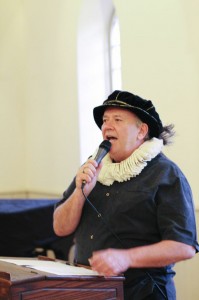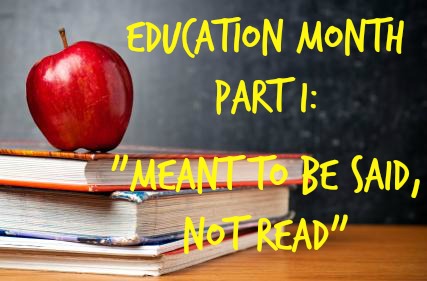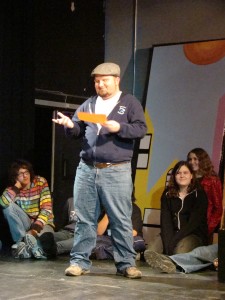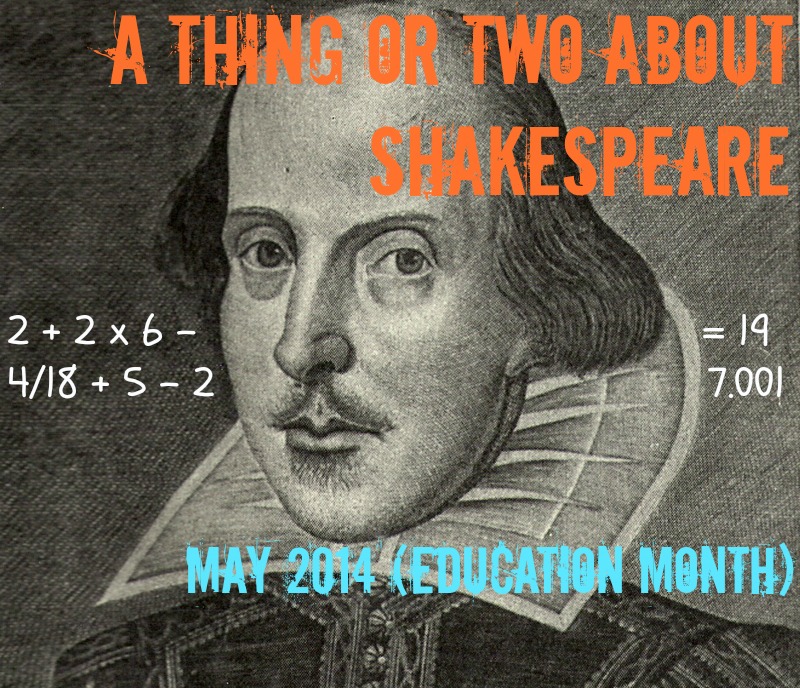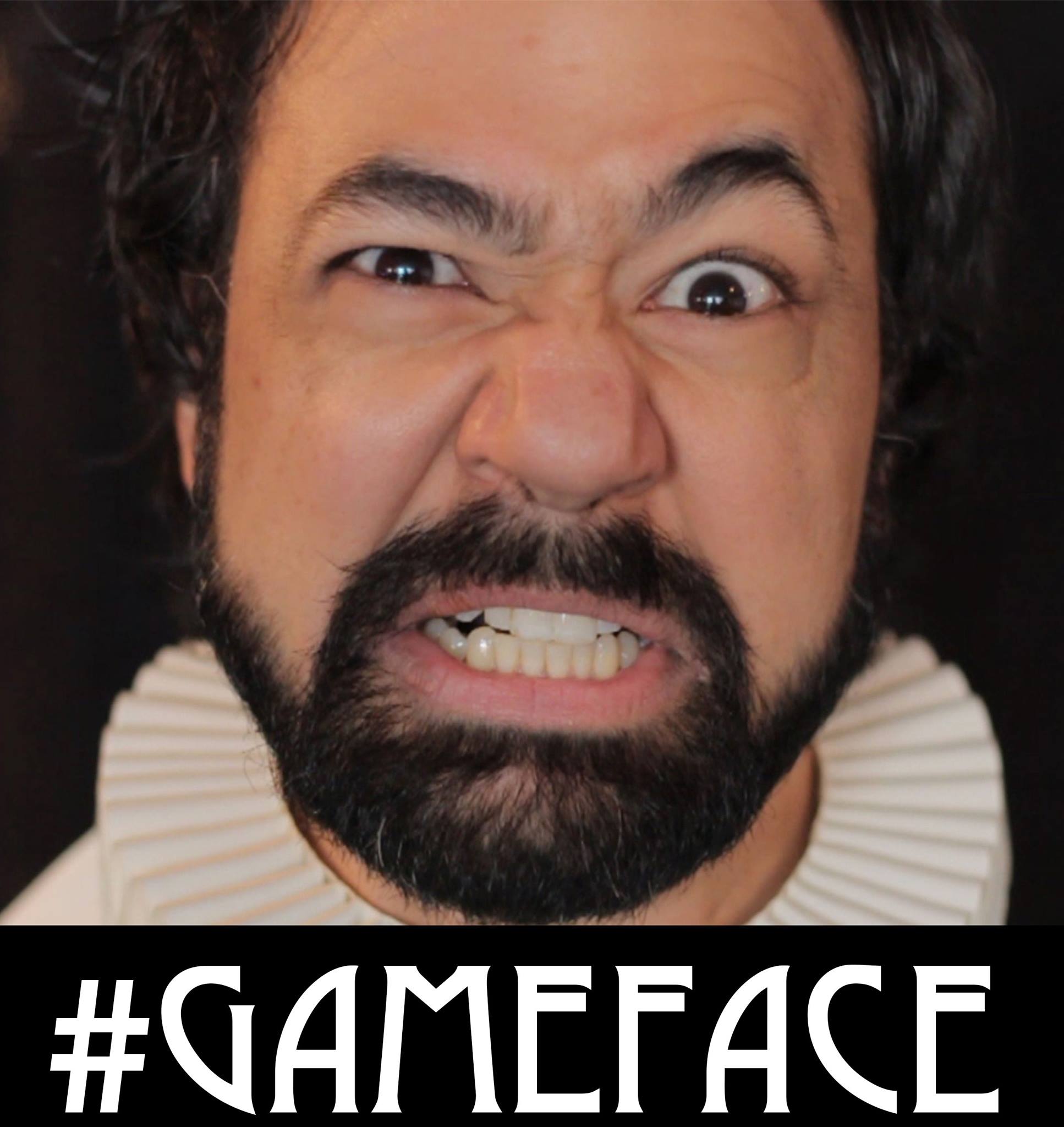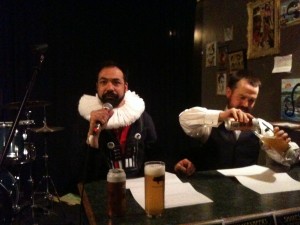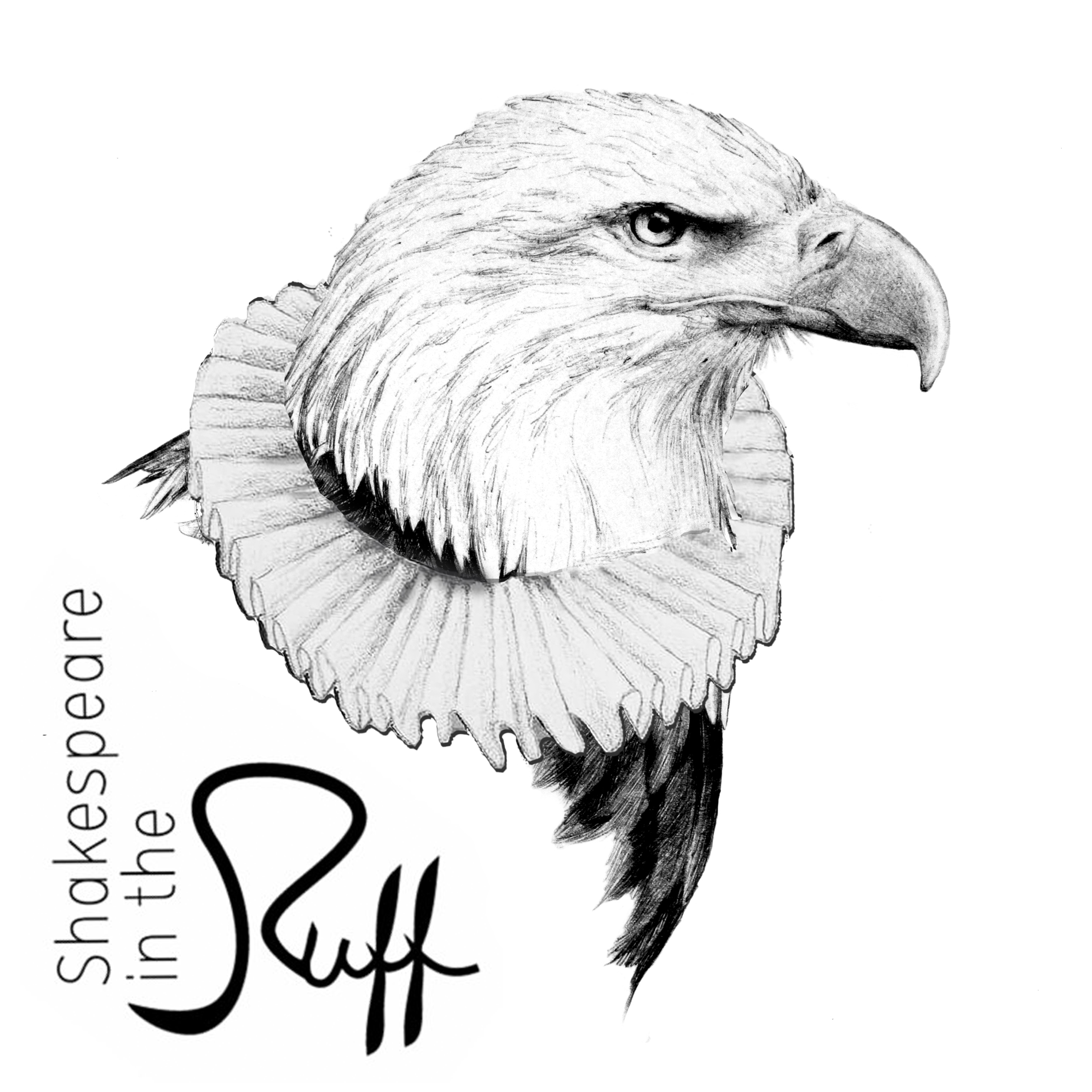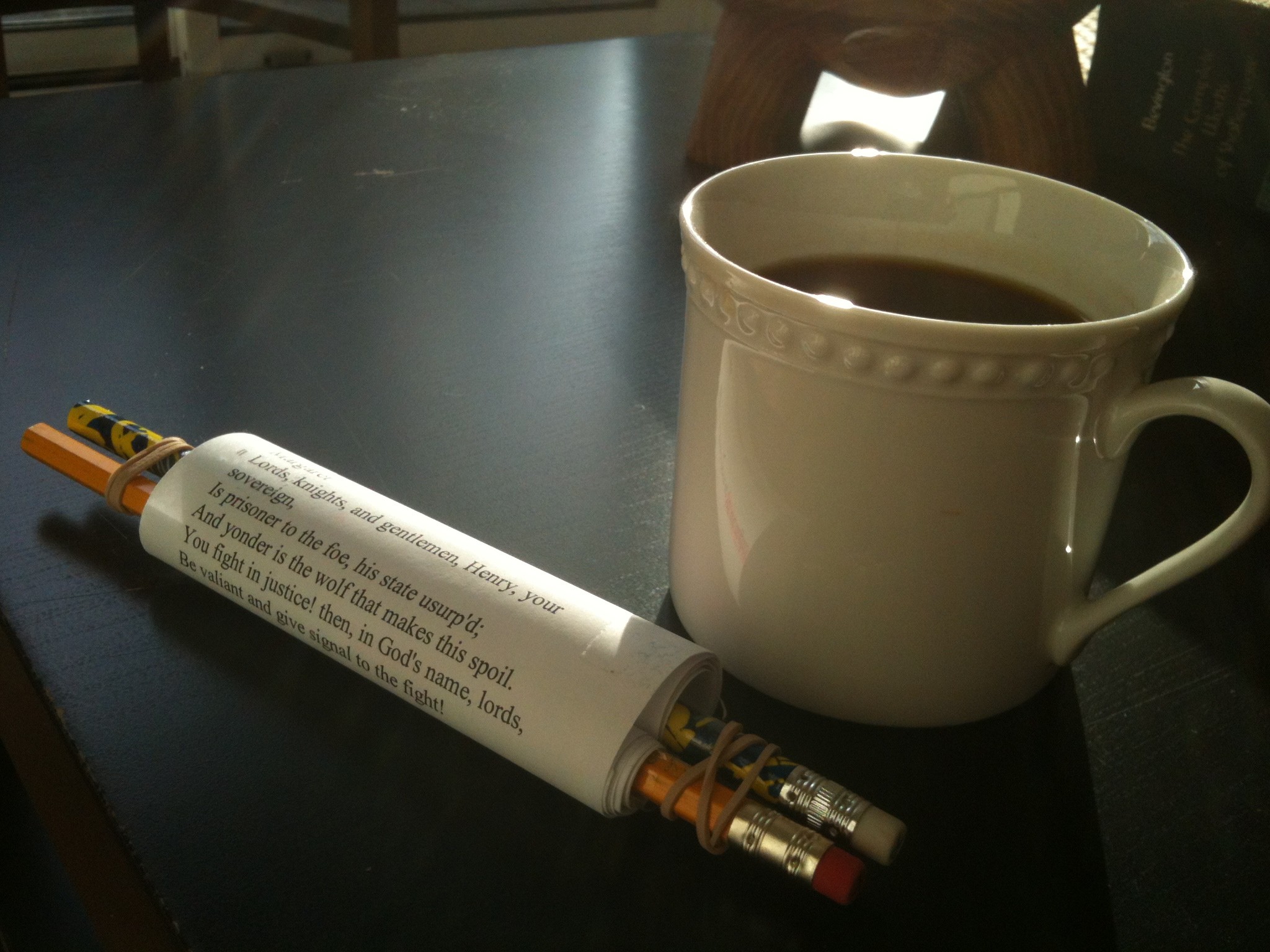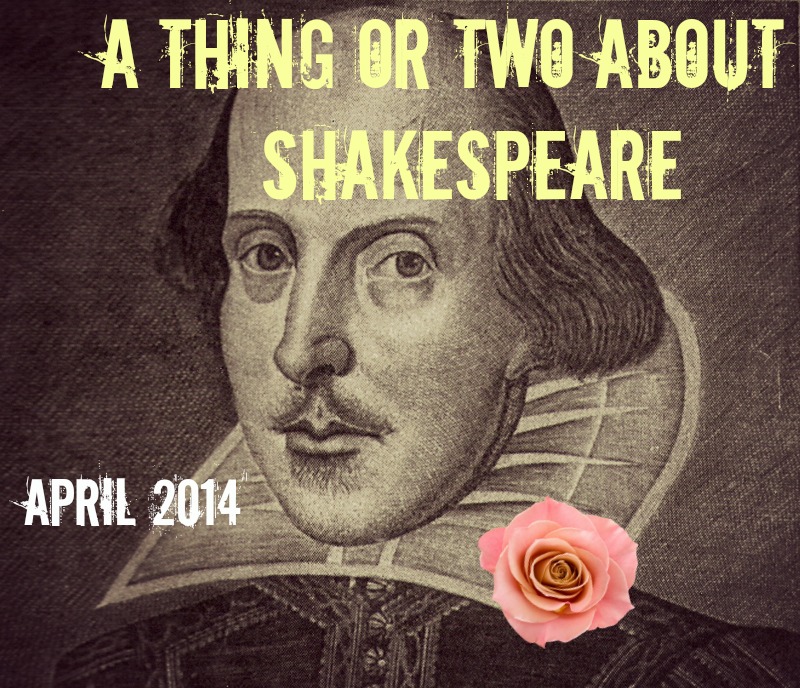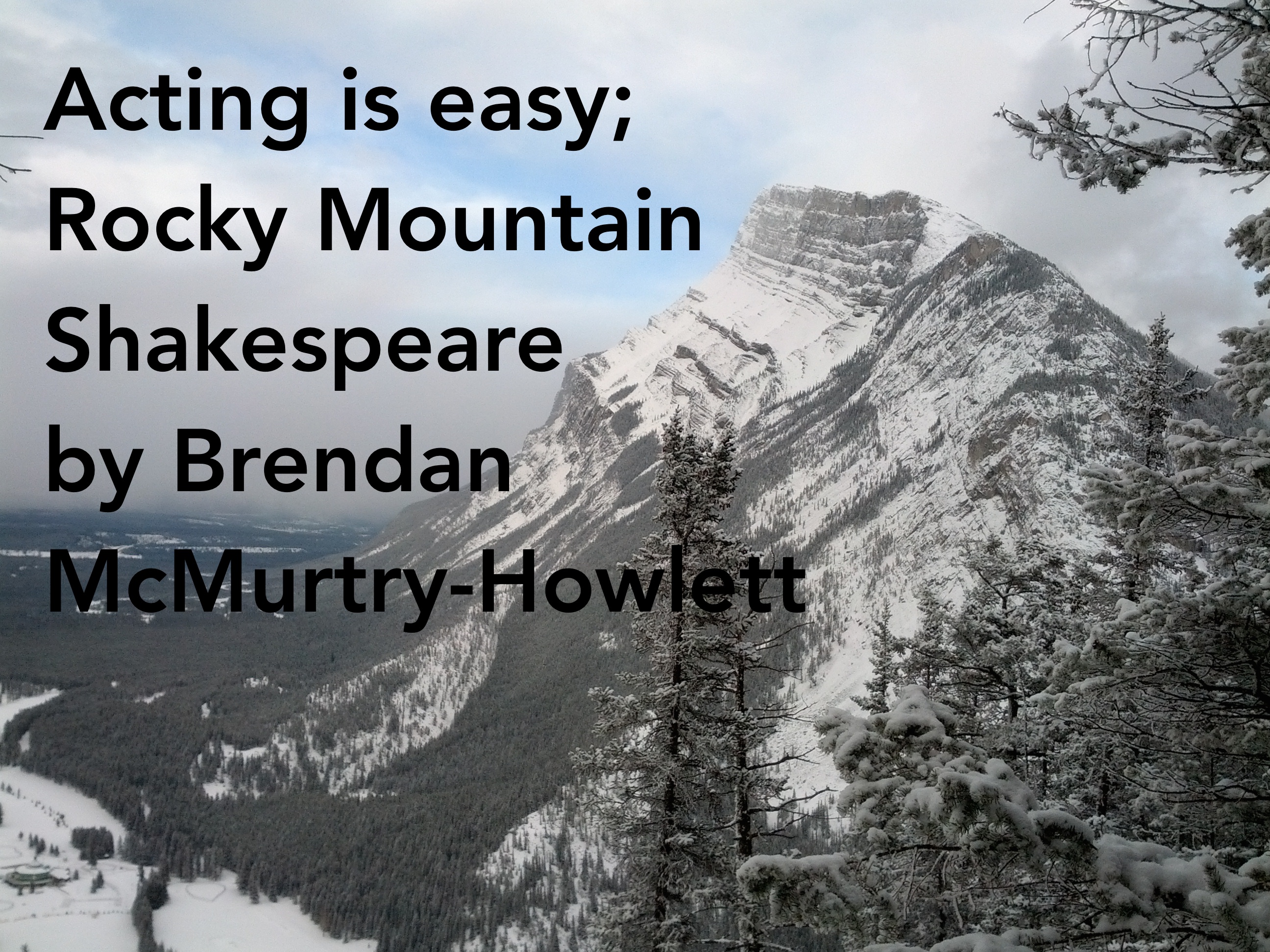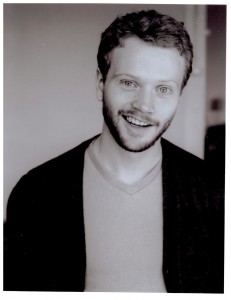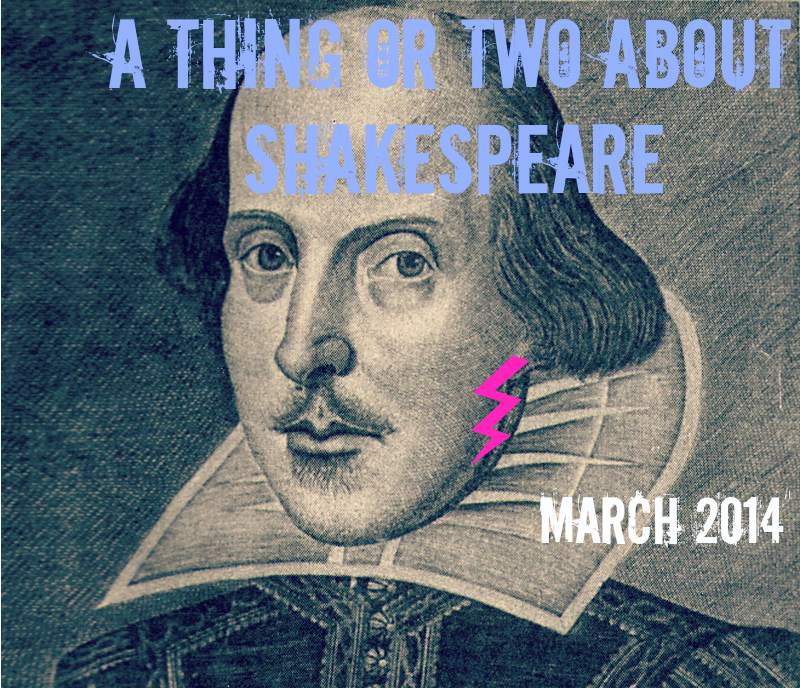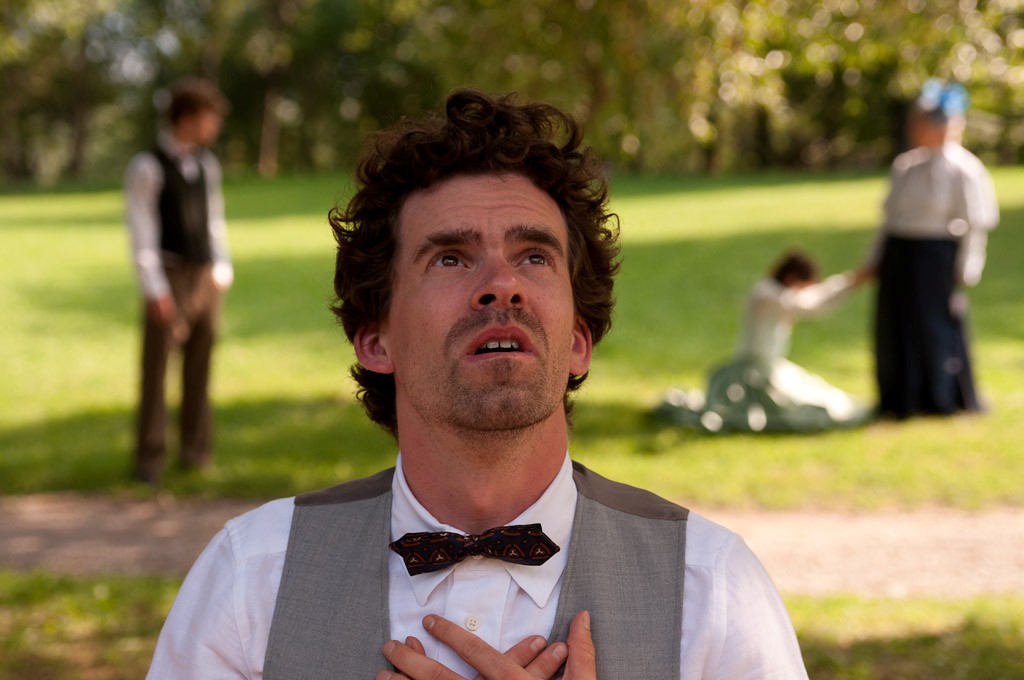
As we gear up for the Young Ruffian Apprenticeship Program this summer (applications due June 1st) we continue our Education Month with Ruff’s Chairman of the Board, Larry Smith, sharing the first assignment he would present to Grade 9 students green to Shakespeare and afraid of the language.
One of the reasons I always enjoyed teaching Grade 9 classes was that, for most students, Grade 9 English is often where they are first introduced to Shakespeare. I am enthusiastically interested in all things Shakespeare – his work, his life, his world – and the opportunity to share that enthusiasm, maybe even instill some of it in others was something that the Grade 9 classes always offered.
Given the barriers that language and poetry present to those new to Shakespeare’s work, I tried to find a way to engage students in Shakespeare before we actually started to read is work. I wanted students to make a connection to Shakespeare’s world that had relevance to them first, hoping that the shared connection would be a springboard for greater interest; and so, I asked students to “become a Shakespearean expert”.
The basic idea was for students to determine what really interested them in their world, be it fashion, music, food, sports, war, travel, etc. Having established that interest, they then explored how that same interest existed in the Elizabethan era.
For some students, the product might be a traditional report on “The Tudor Family” or “Elizabethan Discoveries”, but for most, the product would be models or drawings of the Globe, maps of explorers or war campaigns, paintings of costumes or fashion, or recreations of Elizabethan weapons. The presentations were just as varied – always one or two musical performances, sometimes a sampling of the food or a presenter dressed in a traditional Elizabethan costume that they had made.
These presentations were delivered with an enthusiasm and authority that I have seldom seen matched in other assignments. The students knew their stuff. Students watching the presentations were engaged by the presenters and fascinated by the trivia of another world, a world about which they had become an expert.
As we would enter into the works of Shakespeare, the class collectively knew more about Shakespeare’s world than I ever did – and they knew things about that world that interested them, that had connections and relevance to their world today.
I remember the first time I used a variation of this assignment in a Grade 9 class. It was fairly early in my career; I was enthusiastic about teaching, but not always confident in my abilities as an “ENGLISH” teacher. The day the assignments came in, I remember entering the English Office and excitedly telling my colleagues about all the great projects I had just collected. Now, it may be that it was a different time in teaching, and maybe I went on a bit too long, but my enthusiasm was not entirely appreciated and one older teacher finally turned to me and said; “That’s all fine, Larry, but what has it got to do with teaching English”.
The wind was knocked out of me. I was one of the younger members of the department and what I had been doing in my class was obviously not acceptable. The incident was momentarily painful but ultimately useful as it forced me to evaluate what I was doing in the assignment.
Rather than defeat me, that teacher strengthened my belief in the assignment because I realized I was asking the students to research, to read, to write, to create, to talk, present and listen – all things that have everything to do with teaching English, but with a sense of purpose and ownership that few activities ever have.
Check out the assignment here and please use it!
Larry Smith is an English and Drama teacher in Toronto who has been a Head of English at both adolescent and adult schools in Toronto. He first became excited by Shakespeare when in Grade 11 he was a member of the University of Windsor Youth Theatre and got to act in “A Comedy of Errors”. That enthusiasm for the bard exists to this day as he is a Founding Company member and Chairman of the Board of Shakespeare in the Ruff.

